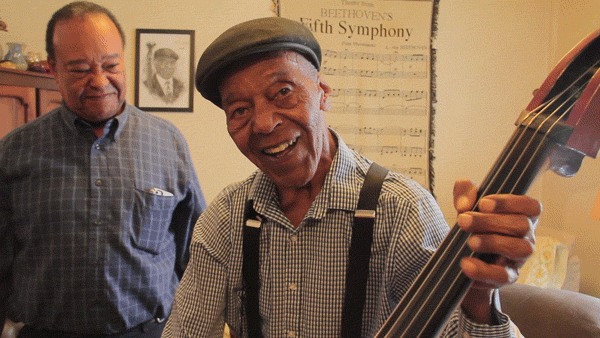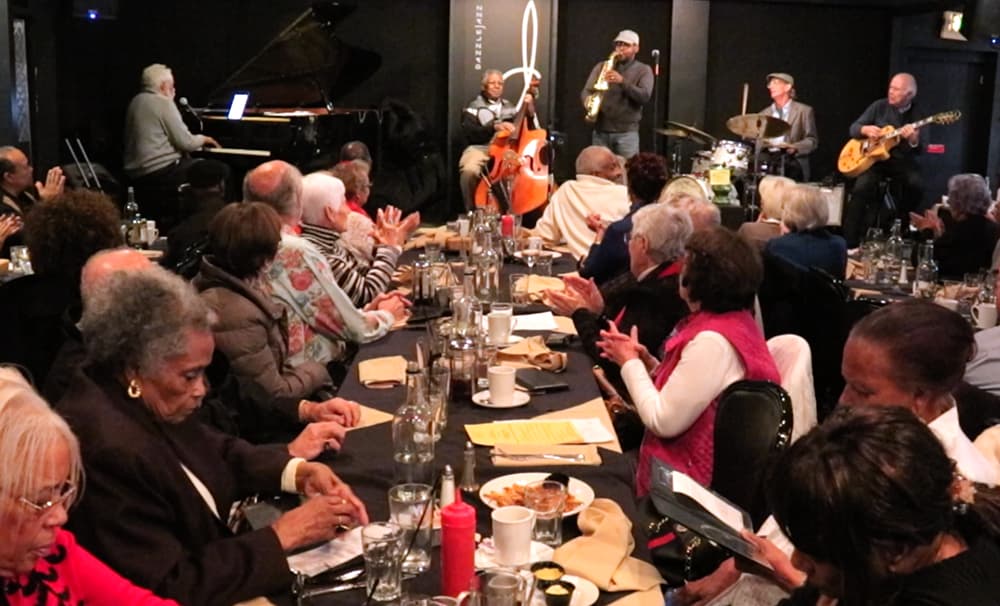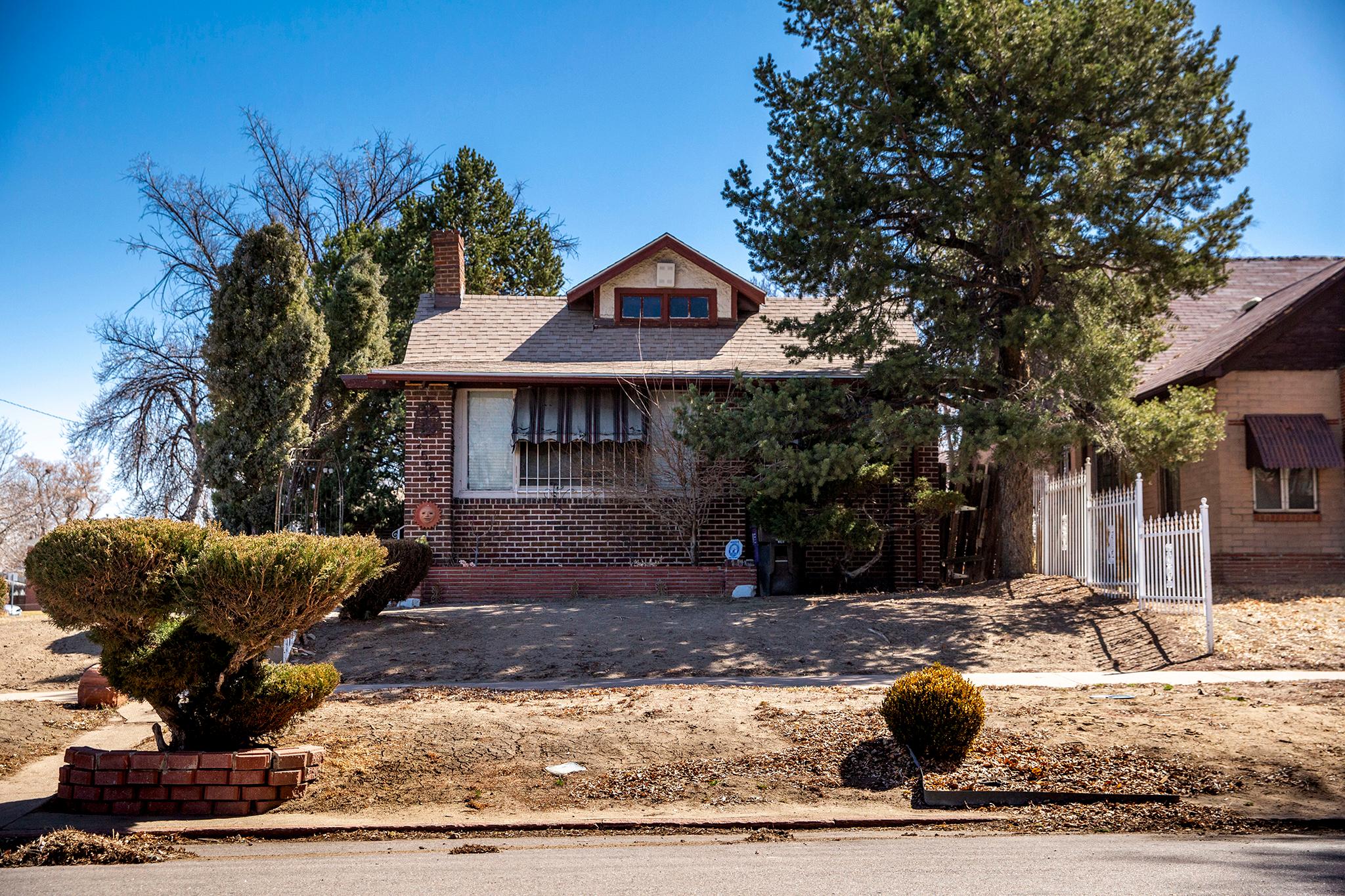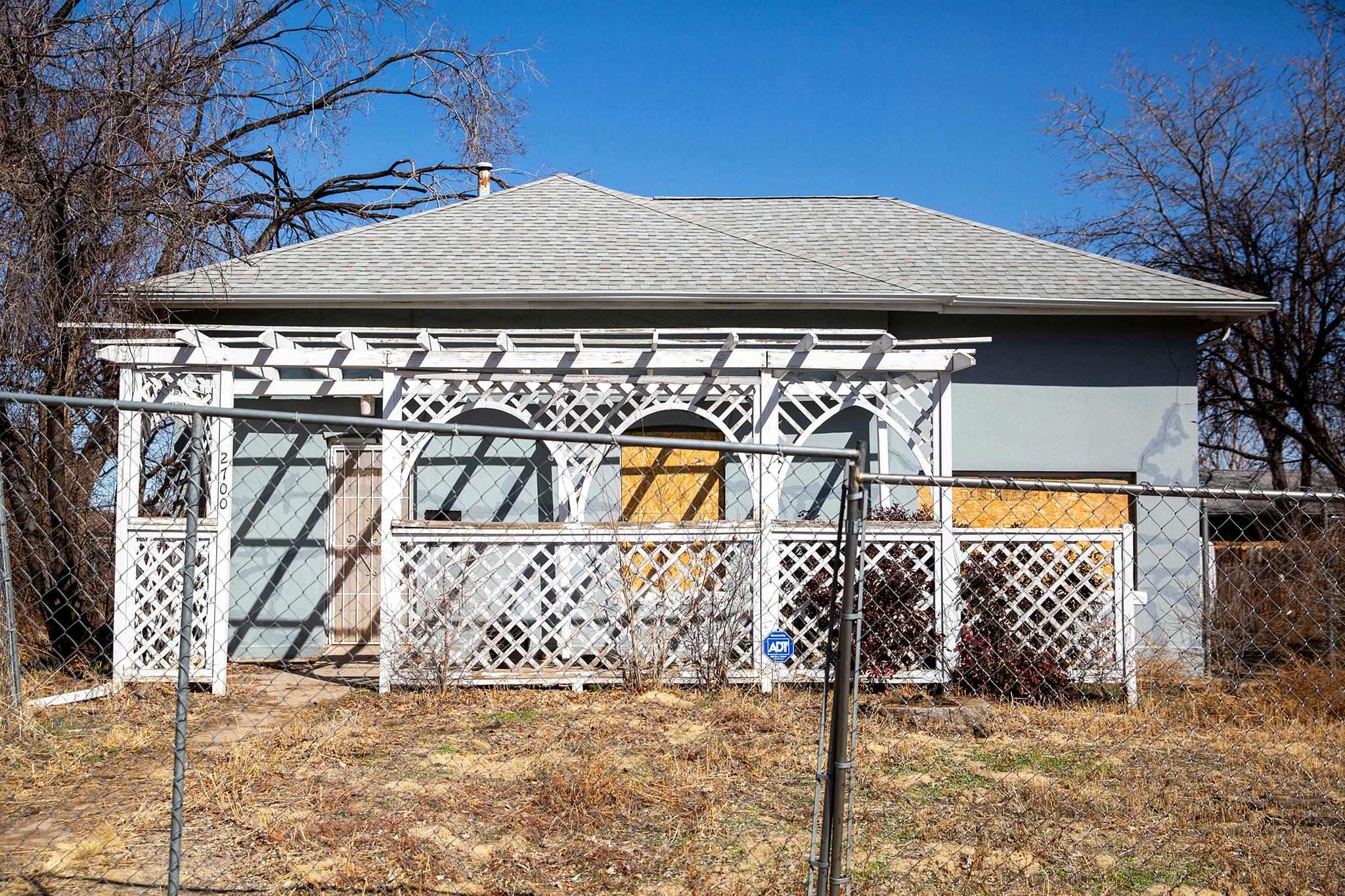Residents of the Skyland neighborhood are thinking of making some noise about a boarded-up house on the corner of Garfield Street and 27th Avenue that's up for sale. The reason: It once belonged to Charlie Burrell, the legendary jazz and classical bassist who was one of the first Black men to play in a major symphony orchestra in this country.
"This is so sad to me," a neighbor wrote on NextDoor, posted with a photo of a for-sale sign in front of the property. "This is Charlie Burrell's home in Skyland. The 'Jackie Robinson' of classical music. This should be a historic building, a museum of Colorado Black Musicians or something. Shall we apply a little pressure?"
First, a little history.
Burrell grew up in Detroit, where he dreamt of becoming a music teacher. He was working toward that goal when America was thrust into World War II. He left his musical studies behind to enlist in the U.S. Navy.
When he returned to education after the war ended, he was told the color of his skin precluded him from ever realizing his dream. He left college for Denver, where his mother lived, but continued to pursue opportunities with his stand-up bass.
In 1949, he became the first Black musician employed by the Denver Symphony Orchestra (now called the Colorado Symphony). One story he talks about from that time involves a side job painting benches at Red Rocks during the day. At night, he'd dress up and play onstage there with the symphony. He is also known as the last living jazz legend who played the historic Rossonian Hotel on Welton Street before it closed.

While journalists and pop culture continued to call him "the Jackie Robinson of music," he was not actually the first Black man to play in a major U.S. symphony. Henry Lewis' job with the Los Angeles Philharmonic gave him that distinction, but it doesn't detract from Burrell's achievement. While Burrell often downplays his historic place in American music, people around him continue to celebrate his persistence, talent and poise.
Burrell is 101 years old and currently lives in southeast Denver. He lived in the Skyland house for about 20 years and sold the property in 2018.

Neighbors say all this history makes the house worth saving.
Stacy Coleman is involved with the North City Park - Skyland Civic Association, a neighborhood group that's been dormant for some years but is restarting in an effort to bolster the community around Burrell's old home. She said she and a lot of her neighbors didn't realize Burrell once lived nearby. When she saw the NextDoor post, she said she was moved to do something.
"It brings a new light to how you can think about the community members that we've had that built this area," she said. "We're really motivated to see if there could be something done."
She wasn't the only one activated by the post, which generated over 250 reactions and more than 130 comments. Some suggested contacting Historic Denver or the Landmark Preservation Commission. Some just expressed support for the idea that the house be saved. One person suggested starting a petition.

According to Denver Community Planning and Development, nobody has officially filed an application to designate the home as a historic landmark. One commenter on the NextDoor post, Jennifer Duggins, said she was in a meeting with the Landmark Commission a few years ago when neighbors brought up the idea.
"Let's be clear, the family wanted to sell the property. The neighborhood did not. Ultimately it came down to the legality of the verbiage and Landmark's hands were tied," she wrote. "It was a sad situation. Very. Fancy-suited attorney's representing developers against black neighborhood members."
Charlie's family isn't really attached to the place, but one relative has other ideas to celebrate Black musicians' legacies in the city.
Purnell Steen is Burrell's cousin one generation removed and an accomplished jazz musician in his own right. He's a regular spokesman for Burrell.
When asked if Burrell's family is concerned about the home's sale, Steen responded with a flat, "No."
"He only lived there 20 years," Steen told us. "There's nothing that would really be significant about it, as far as it being his ancestral home."
He told us Burrell and his wife, Melanie, spent more time in a home in Cherry Creek that was torn down years ago.

Kevin J. Beaty/Denverite
Still, Steen said he wouldn't mind seeing more landmarks to Black musicians in the city. If any house should be saved, he said, it's the home George Morrison on Gilpin Street in Whittier.
"He was to Denver jazz as Louis Armstrong was to jazz in New Orleans," he said. "Morrison should be called 'the father of Five Points' as far as Five Points jazz is concerned."
Someone lives in the home, but if it's ever preserved and turned into a museum, perhaps it would be a good place to celebrate his cousin, Steen said.

Burrell has been honored elsewhere in the city, including a recent mural by Thomas "Detour" Evans near Welton Street.
Despite Burrell's family's position on the Garfield Street house, Coleman said there's still an appetite to honor the bassist in some way. She and her neighbors want to make sure the important figures from their little piece of the city are never forgotten.
"This is one avenue that can be looked at among many," she said. "It's a small neighborhood, but there's a powerhouse of community members."














